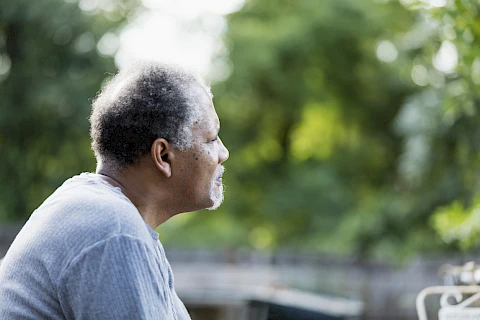
June is PTSD Awareness Month. It’s a vital reminder of the pressing need to spread understanding about Post-Traumatic Stress Disorder (PTSD). While much attention is given to younger populations, it's crucial to recognize that older adults can also suffer from the condition.
Unfortunately, several misconceptions about senior PTSD can hinder their ability to receive proper care and support. To foster better understanding and create a more supportive environment for seniors dealing with PTSD, Senior Helpers Northern Delaware will address some of these common misconceptions.
1. PTSD Only Affects Military Personnel
PTSD often stems from the traumatic experiences one may face in a combat zone. However, the condition is exclusive to war veterans. PTSD is a mental health condition that can impact any individual who has experienced significant trauma. For seniors, this could range from enduring natural disasters to witnessing accidents or experiencing personal violence or loss.
2. PTSD Is Not a Real Disorder
There's an unfortunate stigma about mental health. Sometimes, it can lead people, including seniors, to dismiss conditions like PTSD as mere illusions. PTSD is scientifically acknowledged and classified as a psychiatric disorder. As a recognized mental health problem, it requires professional attention and treatment.
3. PTSD Symptoms Are a Normal Part of Aging
Aging comes with its challenges, but it's erroneous to group the symptoms of PTSD under normal aging. Nightmares, flashbacks, or persistent fear and anxiety are not a typical part of the aging process. Such symptoms may indicate PTSD and warrant a consultation with a healthcare provider.
4. PTSD Can't Affect Seniors
Age is not a protective factor against trauma or the subsequent development of PTSD. Seniors, like the rest of the population, can experience traumatic events leading to PTSD. Additionally, latent PTSD, where symptoms present years after the traumatic event, can also occur in seniors.
5. PTSD Is a Sign of Weakness
This is a damaging and incorrect assumption. No one is immune to trauma, and developing PTSD is not a sign of weakness or lack of character. It’s a response to severe stress or trauma. Recognizing the need for help and seeking treatment are signs of strength, not weakness.
6. There’s No Treatment for Senior PTSD
It's another myth that can deter seniors from seeking the help they need. PTSD can indeed be managed, irrespective of age, with treatments including psychotherapy, medication, or a combination of both. The key is to get a proper diagnosis and personalized treatment plan with the guidance of a healthcare professional.
Senior Helpers Offers Tailored In-Home Care and Support
PTSD is a complex condition that can affect anyone at any age. Debunking prevalent misconceptions and replacing stigma with understanding and empathy are crucial steps toward encouraging seniors who may be dealing with PTSD to reach out for help and assistance.
If you're in Newark, Wilmington, Bear, or New Castle County, remember that Senior Helpers Northern Delaware can help. We’re your reliable partner in quality elderly care through in-home senior support and solutions tailored to your needs, from personal care and companionship to help with daily living activities and more. Contact us today to learn more about our senior care services and support.